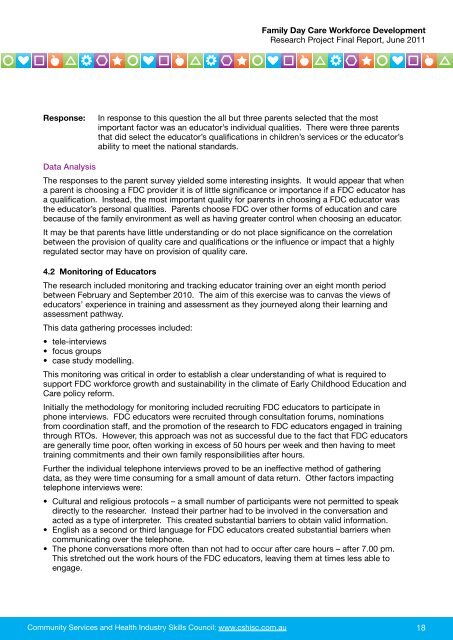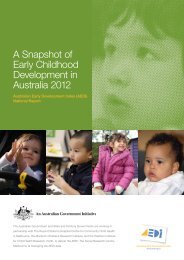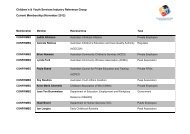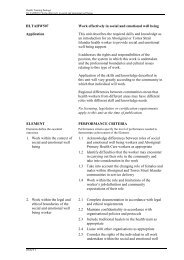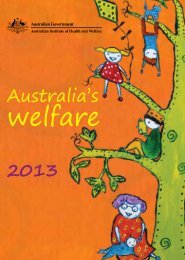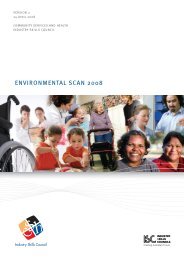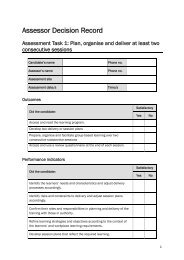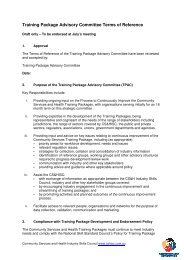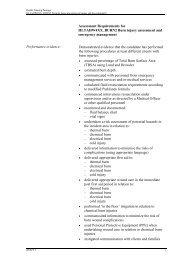Family Day Care Workforce Development - Community Services ...
Family Day Care Workforce Development - Community Services ...
Family Day Care Workforce Development - Community Services ...
- No tags were found...
You also want an ePaper? Increase the reach of your titles
YUMPU automatically turns print PDFs into web optimized ePapers that Google loves.
<strong>Family</strong> <strong>Day</strong> <strong>Care</strong> <strong>Workforce</strong> <strong>Development</strong>Research Project Final Report, June 2011Response:In response to this question the all but three parents selected that the mostimportant factor was an educator’s individual qualities. There were three parentsthat did select the educator’s qualifications in children’s services or the educator’sability to meet the national standards.Data AnalysisThe responses to the parent survey yielded some interesting insights. It would appear that whena parent is choosing a FDC provider it is of little significance or importance if a FDC educator hasa qualification. Instead, the most important quality for parents in choosing a FDC educator wasthe educator’s personal qualities. Parents choose FDC over other forms of education and carebecause of the family environment as well as having greater control when choosing an educator.It may be that parents have little understanding or do not place significance on the correlationbetween the provision of quality care and qualifications or the influence or impact that a highlyregulated sector may have on provision of quality care.4.2 Monitoring of EducatorsThe research included monitoring and tracking educator training over an eight month periodbetween February and September 2010. The aim of this exercise was to canvas the views ofeducators’ experience in training and assessment as they journeyed along their learning andassessment pathway.This data gathering processes included:• tele-interviews• focus groups• case study modelling.This monitoring was critical in order to establish a clear understanding of what is required tosupport FDC workforce growth and sustainability in the climate of Early Childhood Education and<strong>Care</strong> policy reform.Initially the methodology for monitoring included recruiting FDC educators to participate inphone interviews. FDC educators were recruited through consultation forums, nominationsfrom coordination staff, and the promotion of the research to FDC educators engaged in trainingthrough RTOs. However, this approach was not as successful due to the fact that FDC educatorsare generally time poor, often working in excess of 50 hours per week and then having to meettraining commitments and their own family responsibilities after hours.Further the individual telephone interviews proved to be an ineffective method of gatheringdata, as they were time consuming for a small amount of data return. Other factors impactingtelephone interviews were:• Cultural and religious protocols – a small number of participants were not permitted to speakdirectly to the researcher. Instead their partner had to be involved in the conversation andacted as a type of interpreter. This created substantial barriers to obtain valid information.• English as a second or third language for FDC educators created substantial barriers whencommunicating over the telephone.• The phone conversations more often than not had to occur after care hours – after 7.00 pm.This stretched out the work hours of the FDC educators, leaving them at times less able toengage.<strong>Community</strong> <strong>Services</strong> and Health Industry Skills Council: www.cshisc.com.au18


